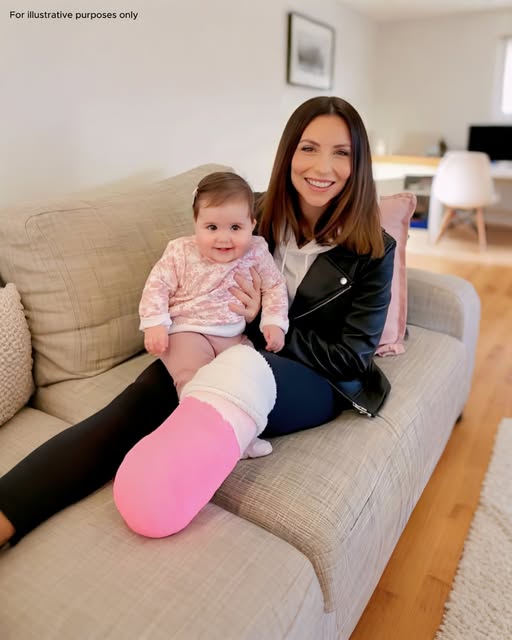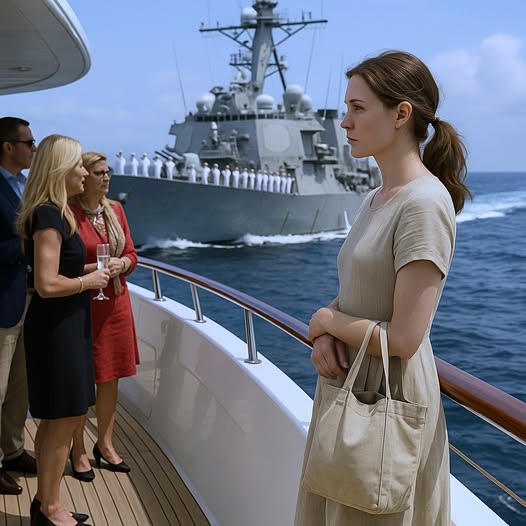It all began with what felt like a simple ache in my thigh. I assumed it was just pregnancy-related—a pinched nerve, maybe sciatica. But the pain kept getting worse. After my daughter, Liora, was born, I tried to push through it. I wanted to savor every tiny moment with her: the sweet newborn smell, her little fingers curled around mine, the joy of late-night cuddles. But soon, the pain became unbearable. One morning, I couldn’t even stand to rock her.
That’s when I finally went in for scans. I’ll never forget the look on the doctor’s face. The kind of look that warns you before a single word is spoken. The scans revealed a rare and aggressive form of soft tissue cancer. My first thought was: I just had a baby. I don’t have time for cancer.
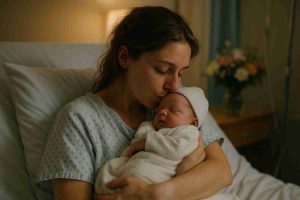
The Battle Begins
Chemotherapy started immediately. My milk dried up, and most nights, I had to hand Liora to my mum while I battled endless rounds of vomiting. As if that wasn’t enough, the tumor spread into my femur. The doctors told me amputation would give me the best chance of survival. I signed the papers without tears—determined not to let pity define me.
I woke up with one leg and a mountain of guilt. I couldn’t carry my daughter, couldn’t chase her when she started to crawl, couldn’t wear the dress I bought for her naming ceremony. But I reminded myself: I was still here. And that had to be enough.

A New Fear
Just three weeks after surgery, while adjusting to physio and crutches, I came across something in my medical file that stopped me cold: a note about a “suspicious lesion in the right lung.” My heart raced. Was the cancer spreading? Why hadn’t anyone told me?
I called my oncologist, but the office was closed. That week was torture—sleepless nights, pretending to be “okay” for my mum, and clinging to Liora’s smiles for strength. When my appointment finally arrived, I confronted my doctor. He admitted he hadn’t wanted to alarm me until he had more information. Another scan was ordered, with the possibility of a biopsy.
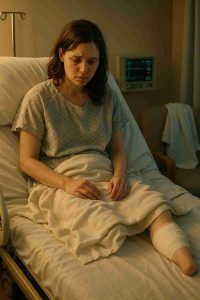
Strength in Strangers
While waiting for results, I threw myself into physical therapy. That’s where I met Saoirse, a woman who had also lost her leg—but to a car accident. She had a calm strength that I desperately needed. She taught me little tricks for balance, how to cope with phantom pain, and reminded me that life goes on after loss. Her story of raising her son alone gave me hope. Her words stuck with me: “Keep your heart open. People will surprise you, and so will you.”
The Results
The day of the scan, my mum drove me in silence. I told her I wasn’t sure I could face another round of chemo. She held my hand and whispered, “Whatever happens, we’ll get through it together.”
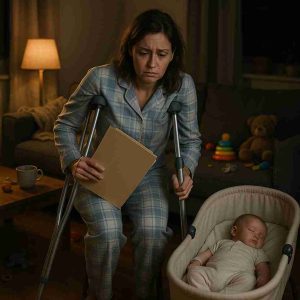
After what felt like an eternity, my oncologist finally shared the news: the spot on my lung was benign. It wasn’t spreading. I couldn’t stop crying, half laughing through my tears. Relief washed over me like a wave I’d been waiting months to feel.
Reclaiming Life
From then on, my focus shifted to healing and rebuilding. Each step with my prosthetic leg felt like reclaiming a piece of myself. I learned how to stretch to ease phantom pain, massage my stump before bed, and—best of all—stand and hold Liora in my arms again. That moment alone was worth every ounce of struggle.
We even had a small “victory party.” My mum baked a vanilla cake with pink frosting, close friends brought flowers and balloons, and we toasted—mostly with lemonade—to resilience, survival, and love. It wasn’t a grand celebration, but it was perfect.
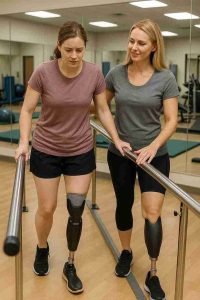
A Lesson in Resilience
As I tucked Liora into her crib that night, I realized something: she didn’t care about my scars, my prosthetic, or the fact that I tired more easily than before. She just wanted me—her mum. And that was enough.
Life doesn’t give us the luxury of choosing our battles. But it does give us the chance to decide how we’ll face them. Some days, I wanted to curl up and cry until I disappeared. But then I’d look at Liora, and I’d remember why I needed to keep fighting.

If there’s one lesson from this journey, it’s this: life can change in a heartbeat. We may lose parts of ourselves—our health, our peace, even a limb—but we are stronger than we realize. With family, with friends, or even with the kindness of strangers, we can keep moving forward. Love, hope, and resilience will always be stronger than fear.
